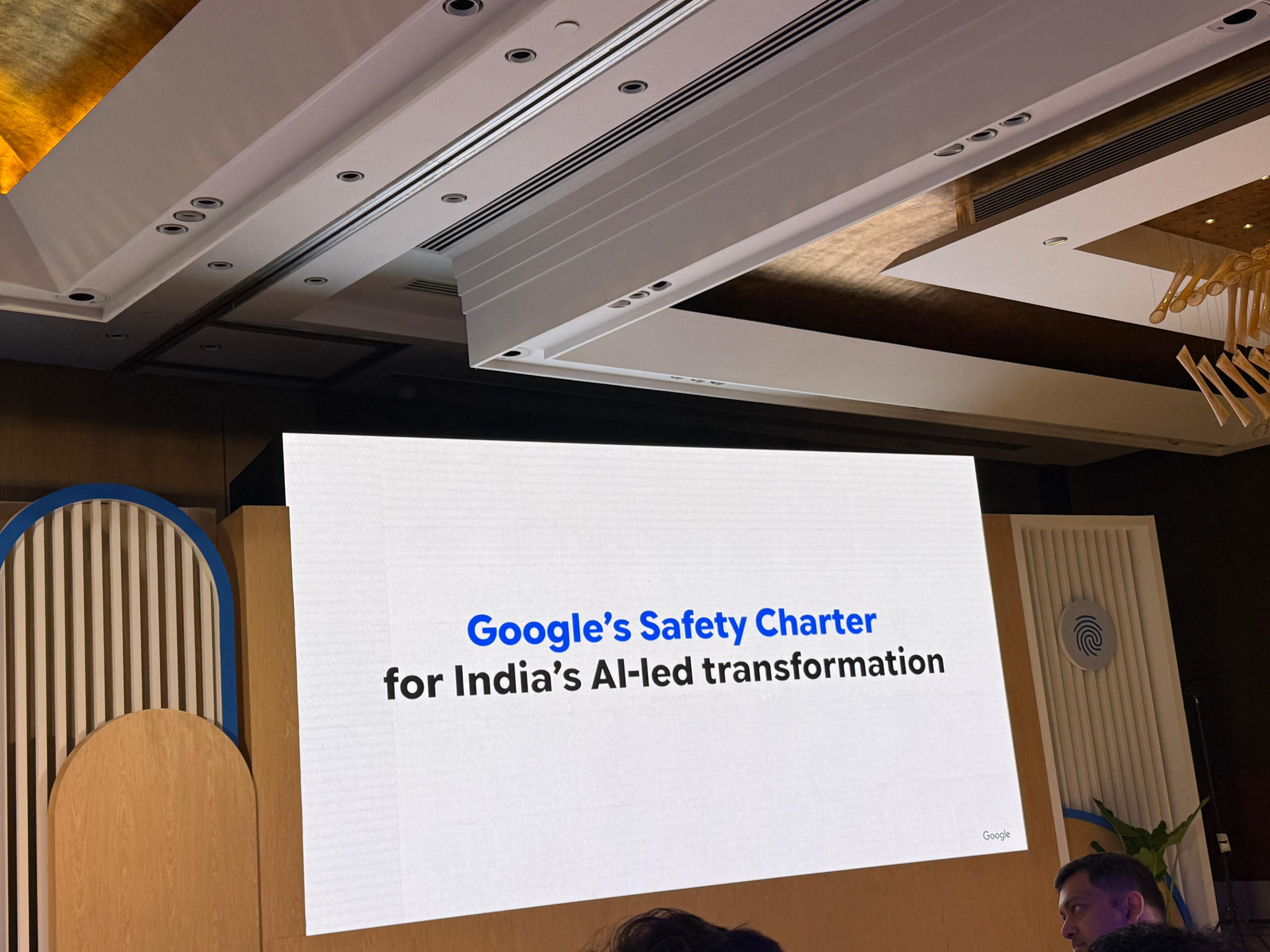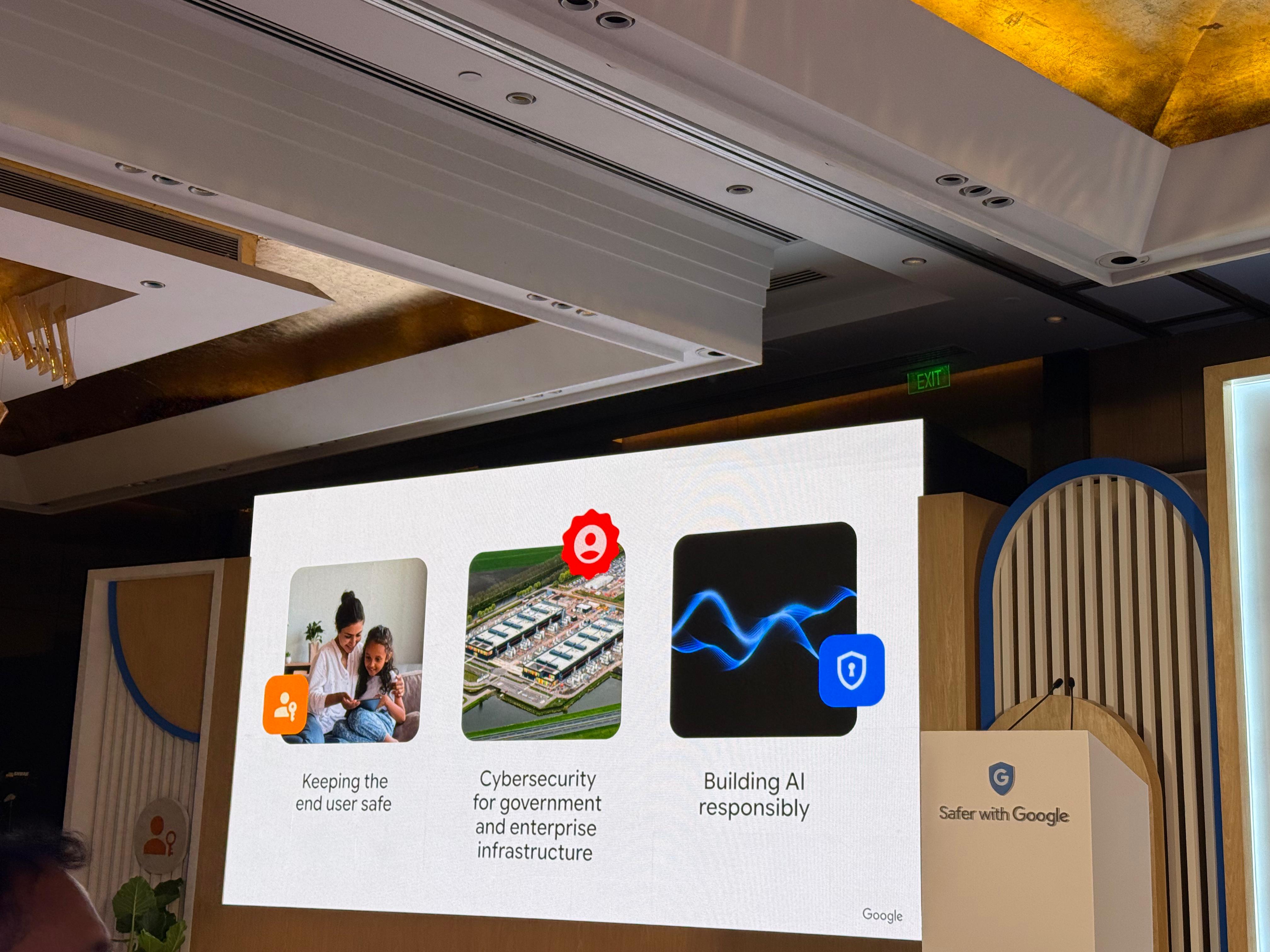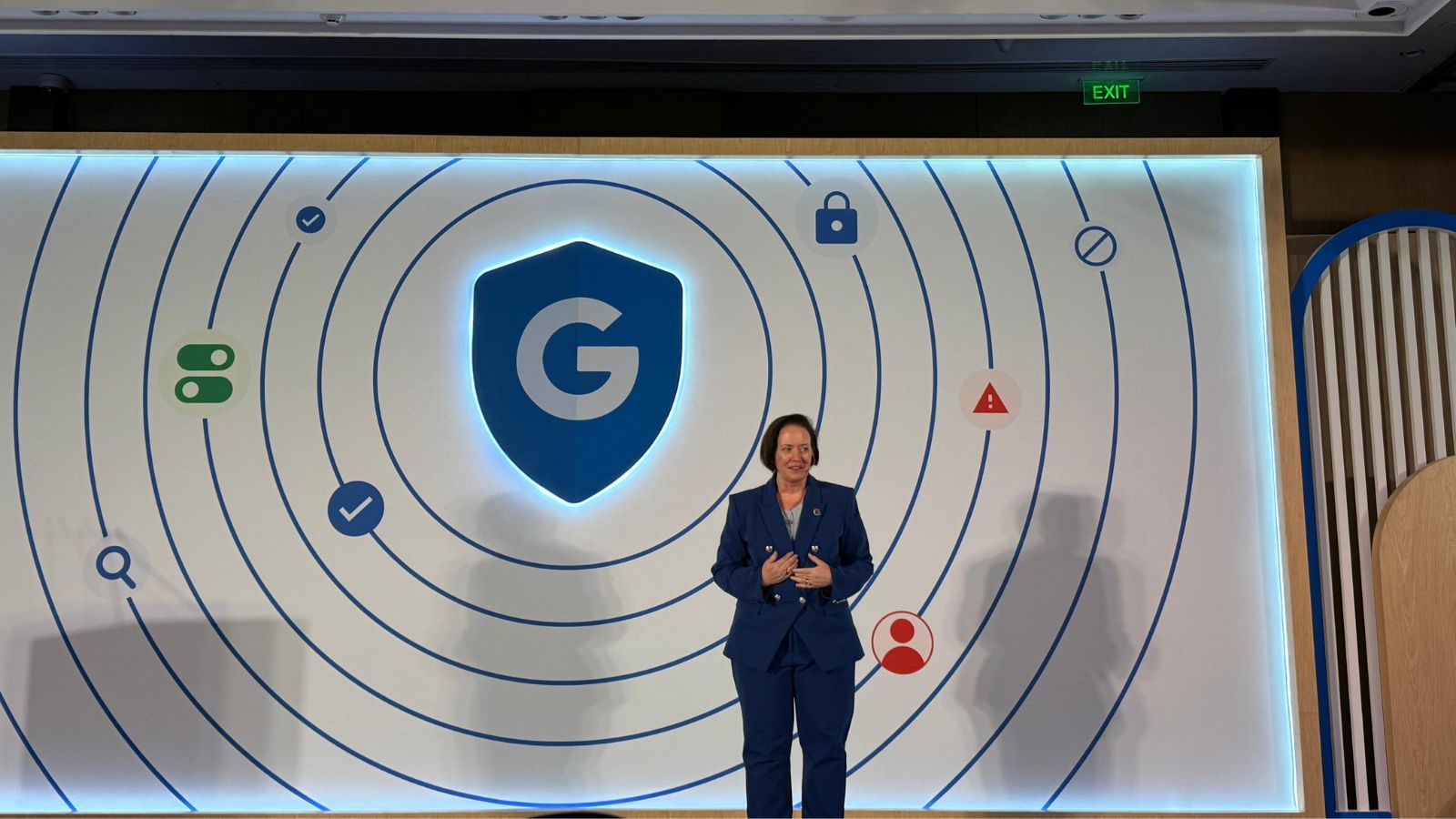Google on Tuesday, June 17, unveiled its Safety Charter in India, aiming to strengthen its efforts in AI-led fraud detection and combat the rise in digital scams across the country.
In India, which is seen as a digital-first nation, fraud related to UPI grew 85 per cent year-over-year to nearly $11 billion last year. In response to increasing incidents of digital arrests and frauds—where scammers impersonate officials to extort money via video calls and fraudulent loan apps—Google is addressing these threats through the new Charter.
“India’s digital journey continues to unlock incredible opportunities, but alongside that, we’ve also seen a rise in the sophistication and aggression of the threat landscape,” said Heather Adkins, Vice President of Engineering, Google Security, addressing a packed audience comprising media ecosystem partners, and government representatives. “If the threats are moving at machine speed, we must react at machine speed as well.”
 Using Gemini, we have improved threat identification by 300 percent, Google said. (Image: Anuj Bhatia/The Indian Express)
Using Gemini, we have improved threat identification by 300 percent, Google said. (Image: Anuj Bhatia/The Indian Express)
Adkins explained that Google’s Safety Charter is built on three fundamental pillars: protecting end users from online fraud, ensuring cybersecurity for governments and organizations at the enterprise level and building AI in a responsible and ethical way.
During the summit, the company announced that Google Pay, one of the leading UPI-based payment apps in India, issued 41 million warnings against transactions suspected to be potential scams.
Google Messages, which comes preinstalled on many Android smartphones, uses AI-powered Scam Detection, helping protect users from over 500 million suspicious messages each month.
Meanwhile, Google piloted its Play Protect programme in India last year, claiming it has blocked nearly 60 million attempts to install high-risk apps. This effort has prevented the installation of over 220,000 unique malicious apps across more than 13 million devices.
Story continues below this ad
Adkins, a founding member of Google’s security team who has been with the company for over 23 years, also highlighted how Google is leveraging artificial intelligence to detect threats.
 Google’s Safety Charter is built on three fundamental pillars. (Image: Anuj Bhatia/The Indian Express)
Google’s Safety Charter is built on three fundamental pillars. (Image: Anuj Bhatia/The Indian Express)
“This is where AI comes into the fight—where humans might take days or weeks to detect a threat, we’ve been able to deploy Gemini to detect it in a fraction of the time,” she said. “This isn’t just about fixing the problem; it’s about reacting quickly.”
“Using Gemini, we have improved threat identification by 300 percent,” she continued. “It’s like a super-fast detective, sifting through layers of information to find the needle in the haystack that unlocks a deeper understanding of the threat.”
Google has partnered with the Ministry of Home Affairs’ Indian Cyber Crime Coordination Centre (I4C) to raise awareness about cybercrimes, the company said in a blog post. This collaboration builds on Google’s existing efforts, including the launch of its online fraud identification program, DigiKavach, which debuted in 2023 to curb the harmful effects of malicious financial apps and predatory loan apps.






Average Rating